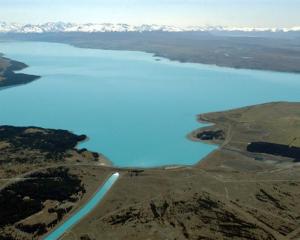
The Ministry of Business, Innovation and Employment recently made funding available to support and enhance its Digital Boost programme, helping small and medium-sized enterprises become digitally proficient.
Among the successful applicants in Otago was the Otago Central Rail Trail Operators Group, an incorporated society representing businesses serving the rail trail from Clyde to Middlemarch, which last month held workshops in Waipiata, Naseby and Alexandra.
The digital facilitation programme is a mix of workshops and one-on-one support and the facilitators are all digital experts from within the region.
As well as the upskilling aspect, it is creating community spirit.
Group chairman Matt Gorman said it had been "phenomenal" to see the businesses getting together and getting access to "first-class" training and resources.
The Digital Boost programme was designed in partnership with industry experts and small businesses to aid the Government’s vision for New Zealand to have the most digitally engaged small business sector in the world.
Small business owners have access to a variety of resources to help them build knowledge, skills, confidence and trust in digital business tools, and help them adopt those tools within their own business models.
Donna Soler, of Middlemarch Lodge and Tours, said the benefits of being involved were "huge".
Not only was it a chance to learn things or improve skills, it also brought people together, she said.
That sense of unity was important; businesses were "all in competition but not really" as there was room for everybody.
She and her partner Annie Duncan came to Middlemarch last year and had found it a "perfect" spot, with a "fantastic" community and central location. The B&Bs in the Strath Taieri town were all quite different and they all worked together, she said.
Bookings for the coming season were "going up and up"; most were from New Zealanders but there were also Australians.
E-bikes had made a big difference, opening up cycle trails to "everybody".
There had also been an influx of younger guests with families who had never previously seen the South Island, or if they had visited, it had been just to the skifields.
Her ambition was to have Middlemarch seen as a destination, rather than just a stop-off.
The best thing that could happen would be for the train to return to the town, or the rail trail be extended all the way to Dunedin, giving people a reason to stay, she said.
Mark Button, of the Waipiata Country Hotel and Tussock Lodge, who hosted the first session at the hotel, said getting proficient in the digital space was important for businesses, and it was very well facilitated.
He agreed that the networking side was also important.
Since he bought the business in March 2015, there had been some really good growth years, he said.
While Covid-19 had cost it "a dollar or two", there had been good support from the domestic market.
Accommodation bookings through winter were up 25% on the previous year and at present bookings for this coming season were 20% up on the same time last year. They comprised 80% New Zealand and 20% Australian.
Paul Bishop, of Naseby Night Sky Tours, said there had already been better income this year than the previous year. It was mostly a New Zealand customer base.
Mr Bishop, whose interest in astronomy began with the Apollo 11 mission to the moon, when he was 5 years old, said he left the Waipiata meeting feeling "quite encouraged", having got some good things out of it.
Tara Druce, of Business South, said anyone interested in being part of a cohort was welcome to get in touch with the organisation.
Cohorts were operating throughout the region and it added up to about 250 small businesses being supported through their digital enablement, all at no cost to them.
It was up to each cohort to establish what its businesses needed most, whether it was the likes of social media, marketing, financial literacy or health and safety systems and processes, so support could be tailored to the group.












